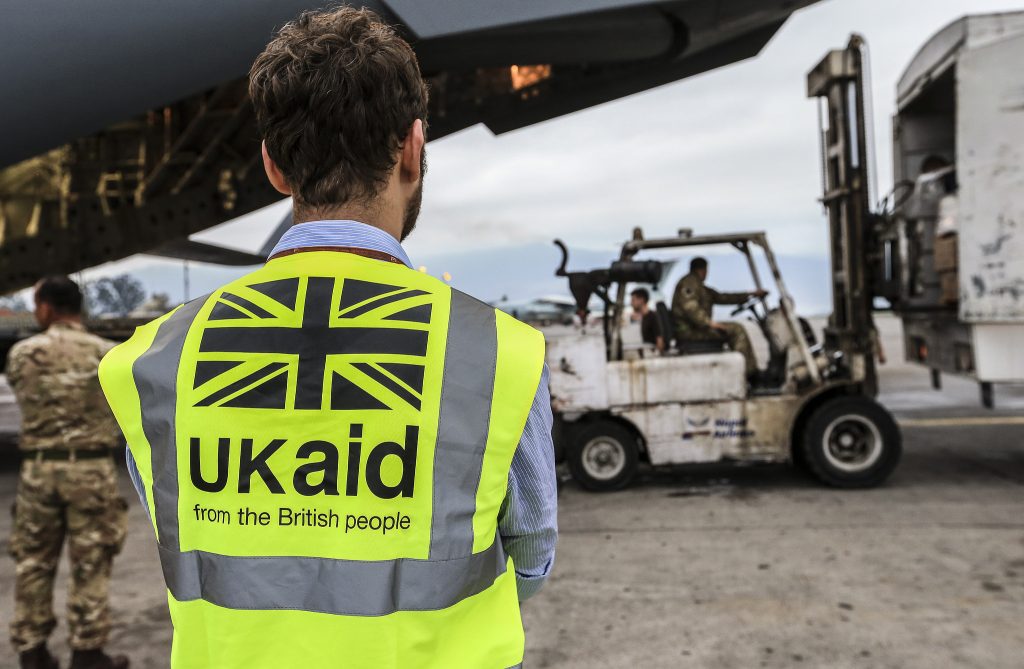Don’t get me wrong, I’m a big fan of Marcus Rashford’s campaign to get an extension of free school meal vouchers for 1.3m kids during the summer holiday. And I’m glad he got the UK government to reverse its position. But what does it say about that government when, on the same day it performed a U-turn on welfare policy in response to a professional footballer, it also decided to merge DFID and the Foreign and Commonwealth Office (FCO)? In so doing, it ignored all the evidence and expertise that argued against the merger. Seems like we’re back to the depressing ‘we’ve heard enough from experts’ days of the Brexit campaign.
A sense of what we are losing was well summarized by David MacNair in a Twitter thread:
‘Thanks to the internationally respected Department for International Development, which pioneered the aid quality standards by which others now abide, governments around the world take the UK’s development policy seriously.
The UK co-chaired the group that created the first draft of the Sustainable Development Goals – the UN’s blueprint for ending poverty that all of the world’s governments signed up to.
The UK also spearheaded anti-corruption policies through hosting the 2016 Anti-Corruption Summit, and through launching the Extractive Industry Transparency Initiative.
From the start of 2015 until the end of 2017, support from the Department for International Development (DFID) helped immunise an estimated 37.4 million children, saving 610,000 lives.
The UK was the first and is currently the only G7 country to reach the UN’s target for spending 0.7% of GNI in aid – spurring more ambition from Germany France and Ireland.’

Only last week, the parliamentary International Development Select Committee concluded that the case for keeping an independent, aid-giving department with a cabinet level minister leading its work is “imperative”.
And the timing is disastrous – a global crisis when the last thing you want is for major donors to turn inwards and lose itself in the inevitable turf battles and bunfights of a reorganization.
So what happens next? Britain is still in the unique position of having its aid budget set by law at a minimum of 0.7% of Gross National Income, but even before the merger, a slippery slope of aid being channelled through other departments had been in evidence: between 2014 and 2019, the share of aid spending outside DfID increased from £1.6bn (14%), to £4.1bn (27%). We can expect to see many more departmental hands in the sweetie jar from now on.
Who is in charge of spending the money matters. In his speech the PM said – “the British taxpayer has the right to expect that we achieve the maximum with every pound we spend” – but achieve what, and for whom? Evidence from National Audit Office and Independent Commission for Aid Impact shows that DFID is far more effective than other bits of government when it comes to tackling poverty: “the redistribution of the aid budget between departments has led to a growing focus on large middle-income countries, driven by security, climate change or economic goals, which risks a reduced focus on poverty and ‘leaving no one behind”.
As a free-standing cabinet-level aid ministry, DFID has increasingly resembled a global ‘last of the Mohicans’, as Australia, Canada, Norway and New Zealand, among others, have all folded respected aid departments back into their foreign ministries in recent years. A well-researched piece on Devex explored the experiences in the first three of these, and reinforces the concerns over what could be lost.
I’m also worried about the future of DFID’s research budget. It has funded some great work over the years – will a merged department born out of a cavalier attitude to the facts put the same kind of store on evidence ?
There are perhaps a few straws to clutch at – after all, there are always plenty of things to criticise at DFID as an any other aid agency. Perhaps this will lead to more joined up government on areas from conflict to climate change action? Perhaps an FCO-DFID hybrid can escape from the econo-bean counters and planners and learn to ‘think and work politically’ and ‘do development differently’? Unfortunately, I’ve tried this argument out on policy wonks in countries that have already merged their foreign and development ministries, like Australia and Canada, and people always tell me I’m chatting rubbish.
So precious few signs of a silver lining – it’s hard to see this as more than an exercise in self-defeating institutional vandalism. We need a U-turn. Anyone got Marcus Rashford’s phone number?
You can find more in my previous pieces on this issue from October 2015 and January 2020.
Update: According to Sarah Champion, the MP who chairs the excellent International Development Select Committee, she has been told her committee will be wound up. So less scrutiny of the aid budget.